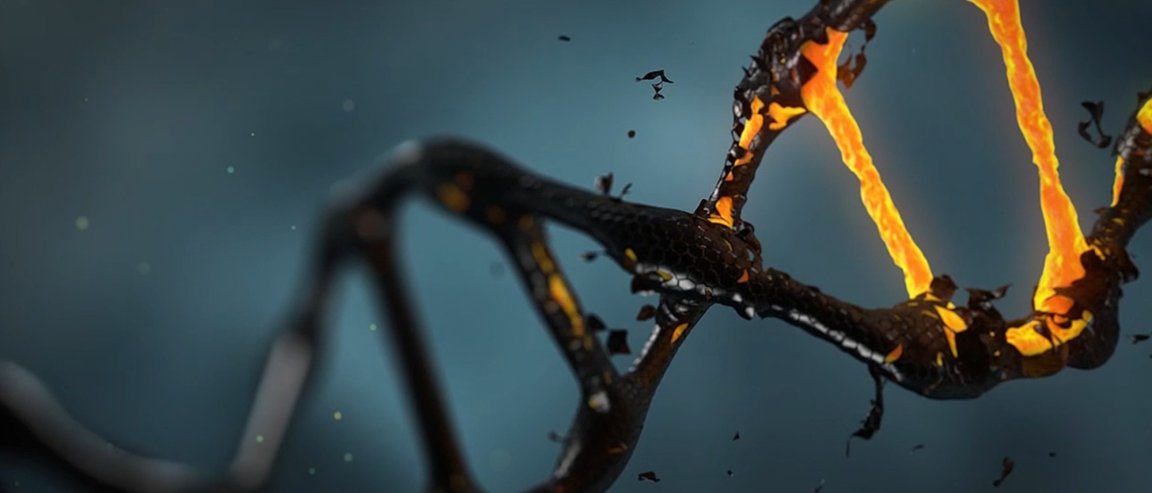
Synthetic Biology
Synthetic biology, the application of principles of engineering to biology, allows scientists to design, reimagine, and fabricate entirely new biological systems and components that do not exist in nature. The burgeoning field combines genomics and the chemical synthesis of DNA, allowing researchers to manufacture various DNA sequences quickly and assemble them in all new ways, creating unique genomes.
In short, synthetic biology is the realm of creating life from scratch. Scientists are closer to achieving this ability than they’ve ever been before — and investors and technology innovators are watching. Record sums are being invested in synthetic biology, which is promising to deliver novel biofuels, drugs, foods, materials, bio-products like organs for transplant, chemicals, and even perfumes. All of this promise is offsetting safety and ethical concerns for many investors who can’t resist the siren song of the incredible range of applications for synthetic biological products, and their vast market potential. This temptation is enhanced by the fact that the cost of DNA analysis only continues to drop.
Matt Ocko, a venture capitalist whose past Silicon Valley investments include Uber, Facebook, and Zynga, thinks that synthetic biology has already proven it can deliver economic value with its “epiphany” moment.
“Synthetic biology companies are now becoming more like the disruptive, industrial-scale value propositions that define any technology business,” he told Reuters. “The things that sustain and accelerate this industry are today more effective, lower cost, more precise and more repeatable. That makes it easier to extract disruptive value.”
Experts met in London during the first week in April for a global synthetic biology conference. This meeting came only four weeks after researchers revealed they were almost finished synthesizing the entire genome of baker’s yeast. This is significant in that yeast is a eukaryote, and its cells contain nuclei — just like ours. The yeast project has proven that large-scale DNA manipulation is possible. In practice, the scientists working on the project have treated the process as if they were “decoding” it, thereby learning to work with a novel programming language that has four chemical building blocks (A, C, G, and T) rather than 1s and 0s.
This is a very relatable concept for tech investors who are looking for the next amazing breakthrough, and the numbers in synthetic biology prove it. According to synthetic biology network SynBioBeta, in 2016, a record $1.21 billion was invested in the synthetic biology sector worldwide. That’s three times as much as in 2011 — and in that same amount of time. Further, the number of synthetic biology firms almost doubled to 411. A variety of synthetic biology companies are starting up, offering everything from new industrial chemicals to DNA synthesis and software — such as Britain’s Synthace and Twist Bioscience in the U.S.
This is a far cry from the original algal biofuel focus seen in synthetic biology circles, and many commentators think that’s a good thing. Stanford University’s Drew Endy explained to Reuters: “Why would you bank your whole platform on a bulk high-volume, low-price, low-margin product? It’s baffling, not strategic.”
Synbio firms have gotten smarter, too — not just in terms of the tech and science, but in drawing investment. Bolt Threads of California recently debuted yeast-derived spider’s silk in the form of a limited edition $314 necktie. Their Japanese competitor, Spiber, created a spider-silk concept parka jacket. Gingko Bioworks of Boston is developing a synthetic rose oil for Robertet, a French fragrance house, and Evolva of Switzerland has created a vanilla extract that is free of petrochemicals — unlike most vanilla flavorings.

Synthesizing The Future
As with any new technology — especially one that touches healthcare, food, and the environment — synthetic biology has its critics. In a time of rampant anti-GMO sentiments, it’s no surprise that Friends of the Earth has described the vanillin derived from yeast as “extreme genetic engineering.” Other controversies, such as those surrounding de-extinction of species such as the Tasmanian tiger and the Woolly Mammoth, are making waves in both scientific and lay communities.
However, the crux of the anti-synthetic biology argument is substantially the same as that of the anti-GMO argument: we shouldn’t play God. If we do, there may be unpredictable, Frankenstein-esque consequences that we can’t control. This argument isn’t all that persuasive, primarily because it is neither evidence-based nor specific enough to mean much. Caution and scientifically rigorous process are certainly called for, as is the collaborative application of bioethics at these early stages in the game. These kinds of safety nets will bear far more protective fruit than either fear-mongering or outright prohibitions, especially considering how much we all stand to gain from synthetic biology.
The field is likely to yield tremendous benefits to human health, numerous industries, and the environment. Scientists will use synthetic biology to identify and remove environmental contaminants from air and water. Engineers will apply synthetic biology to create devices to diagnose, monitor, and treat disease, and researchers will use it to develop new, more effective vaccines and drugs. Synthetic organs, organs on chips, and super biomaterials will be produced using this technology. Synthetic biology could be used to create living cell lines for pharmaceutical testing ,as well as increase efficiency in biomanufacturing and chemical technology.
Intrexon, which has been fighting Zika virus and other dangerous diseases by releasing genetically manipulated mosquitoes by the millions in Brazil, is providing an example of synthetic biology in action. While many critics have spoken up against Woolly Mammoth 2.0 or lab-grown meats — particularly since it’s easier to criticize without a dire need or an essential, articulable problem to solve — it’s harder to argue against a possible solution for mosquito-borne illnesses. Success for Intrexon will hopefully mean more acceptance for synthetic biology across the board.